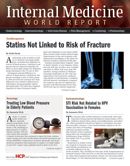Excess Folic Acid Intake During Pregnancy Linked to Diabetes, Obesity in Daughters
For mothers expecting a girl, research suggested consuming large quantities of folic acid (FA) increases the risk of obesity and diabetes in their child.

For mothers expecting a girl, research suggested consuming large quantities of folic acid (FA) increases the risk of obesity and diabetes in their child.
While daily FA use is recommended by the World Health Organization (WHO) to ensure a healthy pregnancy, women who have a history of neural tube defects are directed to take 5 mg of FA a day — 10 times the typical dose — according to a statement.
For their study published in the Journal of Endocrinology, Portuguese researchers gave pregnant mice the recommended dose of FA (control, C, 2 mg FA/kg of diet, n=5) or high doses of folic acid (HFA, 40 mg FA/kg of diet, n=5), amounting to 20 times the suggested dose. Administration of FA began during mating, and consisted throughout pregnancy and lactation.
Throughout the study, researchers measured the weight, food and fluid intake of mother rats and their offspring in addition to creating a metabolic blood profile for rat offspring at three and 13 months.
Compared to rats given normal levels of FA, HFA rats — both parent and offspring— were found to have an increase in body weight. HFA offspring also had increased blood sugar at 3 months, with both male and female parents having lower glucose tolerance as well.
Moreover, female offspring lacked sufficient levels of a hormone called adiponectin which protects against obesity and diabetes.
“Feeding of fructose to adult offspring revealed that peri-gestational exposure to HFA renders female progeny more susceptible to developing metabolic unbalance upon such a challenge,” the writers noted. “The results of this work indicate that peri-gestational HFA exposure affects long-term metabolic phenotype of the offspring, predisposing them to an insulin-resistant state.”
"While taking a minimum of 0.4mg of FA per day is essential when pregnant, our study shows that it is possible to have too much of a good thing,” the study’s lead author, Elisa Keating added in a statement. "Considering the increasing amount of FA consumed during pregnancy through fortified foods, multivitamin pills and supplements, the search for a safe upper dose of folic acid is urgently needed".
Claiming their study underscored the dangers of excess FA exposure, the team plans to investigate how folic acid influences the offspring’s metabolism and how these results translate to humans’ health.
"Our study clarifies the potential effects of excess folic acid exposure and may play an important role on rethinking current public health policies surrounding folic acid supplementation," Keating said.
